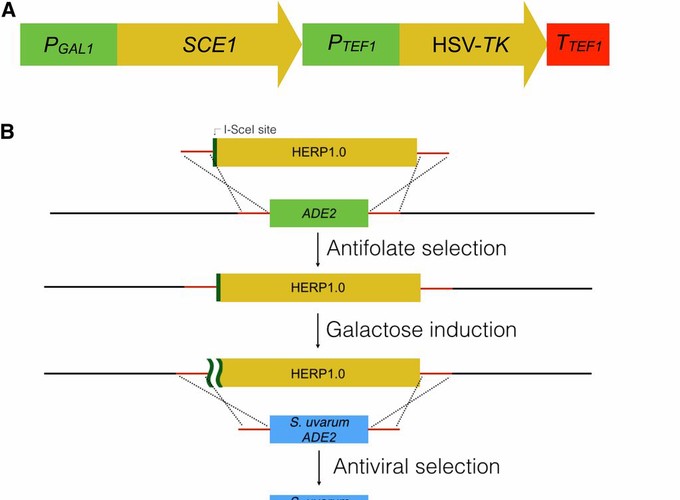High-efficiency genome editing and allele replacement in prototrophic and wild strains of _Saccharomyces_
 Graphical Abstract
Graphical Abstract
High-efficiency genome editing and allele replacement in prototrophic and wild strains of _Saccharomyces_
Abstract
Current genome editing techniques available for Saccharomyces yeast species rely on auxotrophic markers, limiting their use in wild and industrial strains and species. Taking advantage of the ancient loss of thymidine kinase in the fungal kingdom, we have developed the herpes simplex virus thymidine kinase gene as a selectable and counterselectable marker that forms the core of novel genome engineering tools called the Haploid Engineering and Replacement Protocol (HERP) cassettes. Here we show that these cassettes allow a researcher to rapidly generate heterogeneous populations of cells with thousands of independent chromosomal allele replacements using mixed PCR products. We further show that the high efficiency of this approach enables the simultaneous replacement of both alleles in diploid cells. Using these new techniques, many of the most powerful yeast genetic manipulation strategies are now available in wild, industrial, and other prototrophic strains from across the diverse Saccharomyces genus.